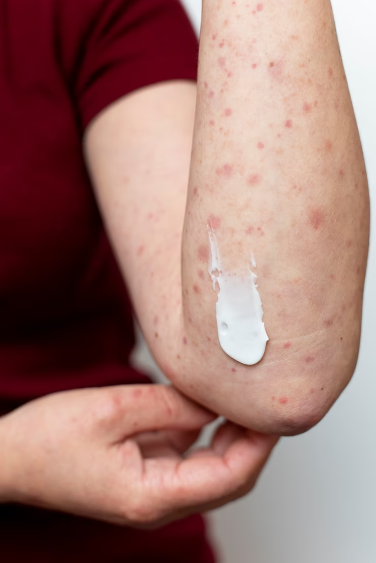Why your skin may not be glowing despite adequate care

Introduction
Glowing, radiant skin is often seen as a sign of good health and beauty. Many people invest time and effort into skincare routines, yet they may find that their skin still lacks the coveted glow. In this blog, we will explore various factors that can contribute to lackluster skin, despite adequate care. From genetics and lifestyle choices to skincare mistakes and underlying health conditions, understanding these factors can help you achieve the radiant complexion you desire.
GENETICS
Genetics plays a significant role in determining your skin’s appearance. Your genetic makeup can influence your skin type, its natural aging process, and even your predisposition to skin conditions. Some people are genetically blessed with naturally glowing skin, while others may struggle with issues like dryness, acne, or uneven pigmentation. It’s essential to acknowledge that genetics can set a baseline for your skin’s condition, and achieving glowing skin might require more effort for some individuals than others.

Lifestyle Factors

Your lifestyle choices can have a profound impact on your skin’s health and radiance. Factors such as diet, sleep, and stress management play critical roles. A poor diet lacking in essential nutrients can lead to skin issues, while adequate hydration and a balanced diet can promote skin health. Insufficient sleep and chronic stress can trigger skin problems like acne, dullness, and premature aging.
Skincare Mistakes
In the quest for radiant skin, common skincare mistakes can hinder progress despite good intentions. One such pitfall is excessive exfoliation, which can strip the skin’s natural protective barrier, leading to irritation and infections. Achieving a balanced exfoliation routine, tailored to your skin type and product strength, is essential.
Another blunder is using harsh products that promise quick results but often strip the skin of natural oils and disrupt its pH balance. To avoid this, consider your skin type and seek expert advice for suitable products.
Skipping sunscreen is a cardinal sin, as UV radiation contributes to premature aging and skin cancer. Embed sunscreen into your daily routine.
Ignoring your unique skin type and concerns can hinder progress. Customize your skincare to your specific needs.
Finally, seeking professional guidance is crucial when facing skin challenges. Dermatologists can provide personalized recommendations, elevating your skincare journey.

Environmental Factors

Environmental factors, including pollution, UV radiation, and severe weather conditions, profoundly impact your skin’s health and appearance. Frequent exposure to these elements can accelerate aging, result in pigmentation irregularities, and leave your skin lacking its natural radiance. Safeguarding your skin against these threats is imperative. In urban areas or during outdoor activities, using sunscreen provides a protective shield against harmful UV rays, while antioxidants fortify your skin’s defenses. By adopting these precautionary measures, you can counteract the detrimental effects of environmental factors, preserving your skin’s vitality and ensuring it continues to radiate health and beauty.
Hormonal Changes
Hormonal changes, encompassing fluctuations during menstruation, pregnancy, or menopause, wield significant influence over your skin’s condition. These shifts often bring about noticeable alterations in skin appearance and behavior. Acne breakouts, heightened oil production, or shifts in skin texture are prevalent occurrences during such hormonal transitions. Recognizing and adapting to your body’s hormonal rhythms is essential in effectively managing these skin changes.
During menstruation, some may experience increased acne due to hormonal fluctuations, requiring a more meticulous cleansing and spot-treatment routine. Pregnancy, on the other hand, might bring about heightened oiliness or pigmentation concerns, necessitating adjustments in skincare product choices. In the menopausal phase, as estrogen levels decline, changes in skin thickness and hydration may be observed, demanding the use of moisturizers and treatments tailored to address these specific concerns.

By staying attuned to your body’s hormonal shifts and customizing your skincare regimen accordingly, you can mitigate the impact of these fluctuations on your skin, ensuring it maintains its health and radiance despite hormonal changes.
Underlying Health Conditions

Skin issues can occasionally serve as outward indicators of underlying health conditions. Conditions such as eczema, psoriasis, or rosacea can manifest as visible changes in skin appearance and often demand specific treatments tailored to their nature. These conditions can lead to discomfort, inflammation, or persistent skin problems that require targeted care.
Moreover, hormonal imbalances, thyroid disorders, or nutritional deficiencies have the potential to exert a profound impact on your skin’s health and appearance. Hormonal fluctuations, for instance, can lead to acne breakouts or changes in skin texture. If you suspect an underlying health issue might be contributing to your skin problems, it is crucial to seek professional guidance. Consulting a healthcare professional will ensure a proper diagnosis and the development of a suitable treatment plan, addressing both the skin issue and its underlying cause, ultimately promoting your overall well-being.
Aging
As we age, our skin experiences inherent transformations, characterized by diminishing collagen production and a gradual slowdown in cell turnover. These processes contribute to a loss of skin elasticity, the emergence of fine lines, and a lackluster complexion. To counteract these age-related effects and rejuvenate the skin’s appearance, it’s advisable to incorporate anti-aging skincare ingredients such as retinoids and peptides into your routine. These potent components can work to mitigate the signs of aging, promoting a more youthful and radiant complexion over time.

Conclusion
Achieving glowing skin is a multifaceted journey that goes beyond skincare products alone. Genetics, lifestyle choices, skincare habits, environmental factors, hormonal changes, underlying health conditions, and the natural aging process all play roles in your skin’s appearance. By understanding these factors and tailoring your skincare routine and lifestyle accordingly, you can take significant steps toward achieving the radiant complexion you desire. Remember that patience and consistency are key, and consulting with a dermatologist can provide personalized guidance for your skincare journey.
